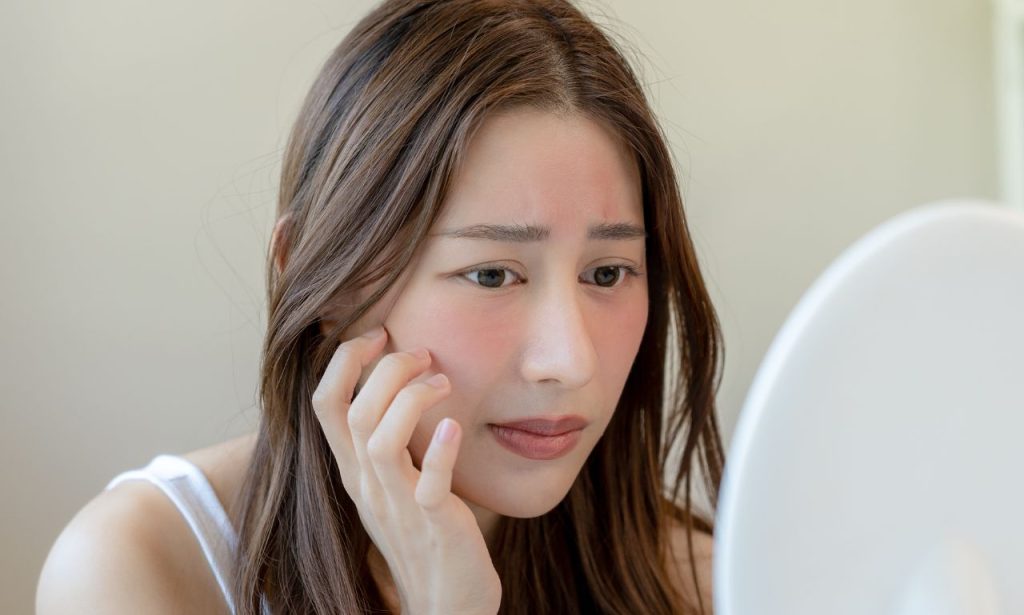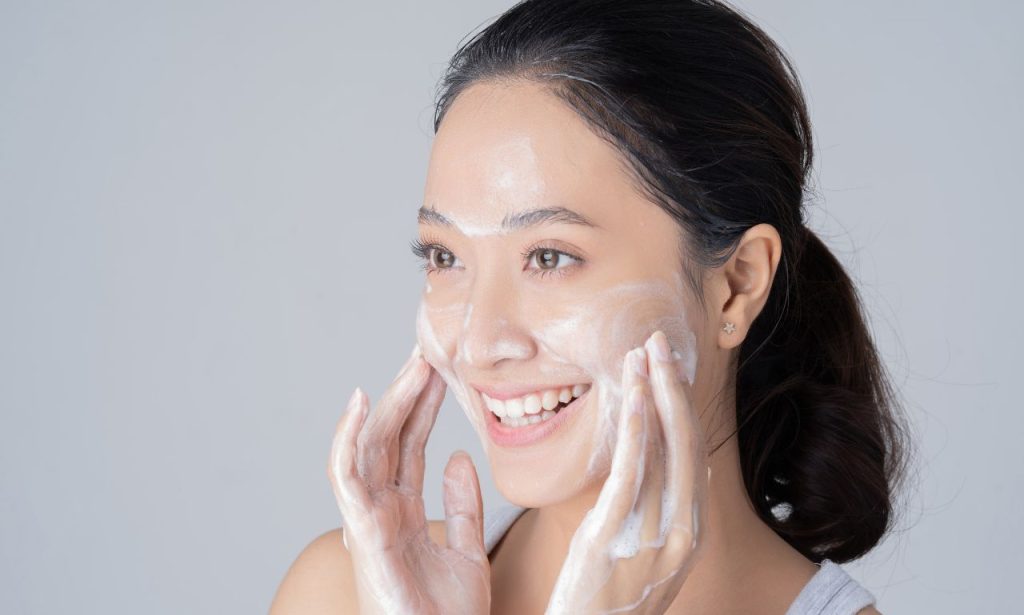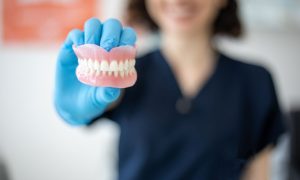Do you find yourself staring in the mirror, wondering why your pores seem to have grown overnight? You’re not alone. Many people struggle with the appearance of enlarged pores, and it can be frustrating to suddenly notice them. But don’t worry, we’ve got you covered! In this article, we’ll dive deep into the world of pores and explore the reasons behind their sudden enlargement. Get ready to learn some skincare secrets that will help you achieve the smooth, flawless complexion you’ve always wanted.
Understanding Pores
What Are Pores, and Why Are They Important?
Pores are small openings on the surface of your skin that connect to hair follicles and sebaceous glands. These glands produce sebum, a natural oil that moisturizes and protects your skin. Pores serve essential roles in regulating your skin’s health by allowing sweat and oil to exit, keeping your skin hydrated, and aiding in temperature regulation.
Contrary to the belief that they are just an aesthetic nuisance, pores are crucial to healthy skin function. The challenge is that sometimes they appear larger due to several factors, which we will dive into shortly.
Factors Determining Pore Size
Your pore size is influenced by various elements, including:
- Genetics: If your parents have visible pores, there’s a high chance you will inherit this trait.
- Sebum Production: Overproduction of sebum can lead to clogged pores, making them appear larger.
- Skin Type: People with oily skin or combination skin are more prone to visible pores, as excess oil production can stretch the pores over time.
- Hormonal Changes: Hormonal fluctuations, like during puberty, menstruation, or menopause, can impact sebum levels and pore size.
What Are Pores?

Pores are tiny openings on the surface of your skin that contain hair follicles and sebaceous glands. These glands produce sebum, the natural oil that keeps your skin moisturized and protected. Pores also play a crucial role in regulating your body temperature by releasing sweat.
The Role of Genetics
Did you know that your pore size is primarily determined by genetics? If your parents have large pores, chances are you might have inherited them too. While you can’t change your genetic makeup, understanding this factor can help you manage your expectations when it comes to minimizing the appearance of pores.
Why Are My Pores So Big All of a Sudden?
It’s common to suddenly notice enlarged pores, but there’s always a reason behind the change. Here are some of the most common causes of a sudden increase in pore size:
1. Clogged Pores
When excess sebum, dead skin cells, and dirt accumulate, they can clog your pores, making them stretch and appear larger. Factors that contribute to clogged pores include not cleansing your skin adequately, using incorrect products, or exposure to pollutants.
2. Aging and Collagen Loss
As we age, our skin naturally loses collagen, leading to a loss of elasticity. Collagen breakdown means the skin is less capable of keeping pores tight. Over time, this results in enlarged pores that are more visible.
3. Sun Damage
Prolonged exposure to ultraviolet (UV) rays can damage collagen and elastin—proteins that provide skin firmness and structure. Chronic sun damage leads to loss of skin elasticity, which ultimately contributes to larger pores.
4. Hormonal Fluctuations
Hormone fluctuations can cause an overproduction of sebum, which leads to clogged pores and a plug-like appearance. This is common during hormonal changes such as puberty, menstrual cycles, or hormonal imbalances due to stress or medication.
5. Over-Exfoliation or Incorrect Products
While exfoliation is vital for maintaining healthy skin, over-exfoliating can damage the skin barrier, resulting in skin irritation and enlarged pores. Similarly, using incorrect products—particularly those that are too harsh or comedogenic—can worsen the appearance of your pores.
6. Dehydrated Skin
Dehydrated skin can have a negative impact on the skin’s natural rejuvenation process, causing the pores to appear larger. When the skin lacks hydration, it produces more oil, which can clog pores and further stretch them.
7 Ways to Minimize the Appearance of Large Pores
The goal isn’t to eliminate pores—that’s impossible—but rather to make them appear smaller and less noticeable. Below are effective methods to minimize the appearance of enlarged pores:
1. Cleanse Regularly (But Gently)

- Use a gentle cleanser twice daily to remove dirt, excess sebum, and impurities that can clog pores.
- Opt for non-comedogenic skincare products that won’t contribute to blocked pores.
- Avoid harsh sulfates, which can strip your skin of natural moisture and disrupt your skin barrier.
2. Exfoliate the Right Way
Exfoliation is key to keeping pores clean and minimizing their appearance, but it’s important to find the right balance:
- Use a salicylic acid cleanser to penetrate deep into the pores and remove impurities.
- Glycolic acid and lactic acid are hydroxy acids that gently exfoliate the skin, reducing the buildup of dead skin cells.
- Avoid over-exfoliating; stick to 2-3 times per week depending on your skin type.
3. Incorporate Retinoids
Retinoids, such as retinol or prescription-strength tretinoin, are powerful in boosting collagen production and improving skin texture. Increased collagen production helps to tighten pores, minimizing their visible size.
4. Hydrate, Hydrate, Hydrate
Dehydrated skin produces excess oil to compensate for dryness, which can lead to clogged pores and make them appear larger.
- Drink plenty of water to maintain hydration levels.
- Use a hyaluronic acid serum to help lock in moisture.
- Always finish your skincare routine with an oil-free moisturizer to keep your skin hydrated without clogging pores.
5. Use a Clay Mask
Clay masks are excellent for drawing out impurities and excess oil from the deeper layers of the skin:
- Apply a clay mask once or twice a week to unclog pores and reduce sebum levels.
- Look for ingredients like kaolin clay or bentonite clay for their ability to absorb oil.
6. Protect Your Skin from the Sun
Using a broad-spectrum sunscreen with at least SPF 30 is essential to prevent sun damage and maintain skin elasticity. Damage from UV exposure leads to collagen breakdown and loss of firmness, which exacerbates pore size.
- Opt for non-comedogenic, oil-free sunscreens to avoid further clogging.
- Reapply every two hours, especially if you’re outdoors.
7. Professional Treatments for Enlarged Pores
In some cases, professional treatments may be more effective in minimizing enlarged pores. Consider consulting a dermatologist to explore options like:
Chemical Peels
- Benefits: Removes dead skin cells, unclogs pores, and boosts skin rejuvenation.
- Frequency: Every 4-6 weeks, depending on skin type and concerns.
Microdermabrasion
- Benefits: Exfoliates, stimulates collagen production, and smooths skin texture.
- Frequency: Every 2-4 weeks.
Laser Treatments
- Benefits: Boosts collagen production, tightens the skin, and helps to reduce the appearance of pores.
- Consultation: Always discuss with your dermatologist to create a tailored treatment plan.
Additional Skin Care Tips for Healthy Pores
- Keep Your Hands Off Your Face: Avoid touching your face throughout the day to minimize the risk of transferring dirt and bacteria into your pores.
- Avoid Heavy, Comedogenic Makeup: Use lightweight, non-comedogenic makeup products that don’t clog pores.
- Use Cold Water to Rinse: Rinsing your face with cool water can help tighten pores temporarily and give a more refined look.
- Control Hormonal Imbalances: Speak to a healthcare provider about managing hormonal fluctuations that can lead to excess oil production and enlarged pores.
- Diet Matters: Avoid excessive consumption of sugary and greasy foods, which can contribute to increased sebum production. Instead, opt for a diet rich in antioxidants and omega-3 fatty acids to promote healthy skin.
Debunking Common Misconceptions

There is a lot of misinformation surrounding pores, and it’s time to clear up some misconceptions:
Myth: You Can Permanently Shrink Pores
Truth: Unfortunately, you can’t change the physical size of your pores permanently. However, by keeping them clean and encouraging collagen production, you can reduce their appearance.
Myth: Pore Strips Are the Best Solution for Blackheads
Truth: While pore strips can remove surface debris temporarily, they do not address the underlying causes of blackheads or enlarged pores. Additionally, using pore strips too frequently can irritate the skin.
Myth: Dirt Is What Causes Blackheads
Truth: Blackheads form when sebum and dead skin cells oxidize within a clogged pore, not because the pores are dirty. Maintaining proper skincare helps prevent this buildup.
Myth: You Can Have Poreless Skin
Truth: Everyone has pores. They serve essential functions for skin health, and striving for “poreless” skin is unrealistic. The goal is to keep them clean and reduce their visibility.
When to See a Dermatologist
If your pores are causing persistent skin concerns or affecting your confidence, it might be time to visit a dermatologist. A professional can provide:
- Prescription Medications: Topical retinoids or other treatments for sebum control and skin texture improvement.
- In-Office Procedures: Advanced solutions like micro-needling, chemical peels, or laser therapy can offer noticeable results when over-the-counter solutions fall short.
- Customized Skin Care Plans: Dermatologists can create a regimen suited specifically to your skin type and goals.
Conclusion
Discovering that your pores have suddenly become more noticeable can be a real confidence killer. But armed with the knowledge of what causes enlarged pores and the strategies to minimize their appearance, you can take control of your skincare routine and work towards achieving smoother, more refined-looking skin. Remember, consistency is key, and it’s always a good idea to consult with a dermatologist if you have persistent concerns about your pores or overall skin health.
ALSO READ: Does Blue Cross Blue Shield Cover Hearing Aids? Here’s What You Need to Know
FAQs
A: While you can’t physically shrink your pores, consistent skincare and professional treatments can help minimize their appearance over time.
A: Pore strips can temporarily remove surface debris, but they don’t address the underlying causes of enlarged pores and can be harsh on your skin if used too frequently.
A: No, everyone has pores, and they serve an essential function for your skin’s health. The goal is to maintain healthy, unclogged pores that are less noticeable.




